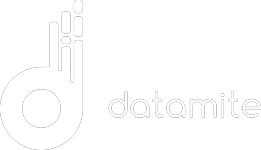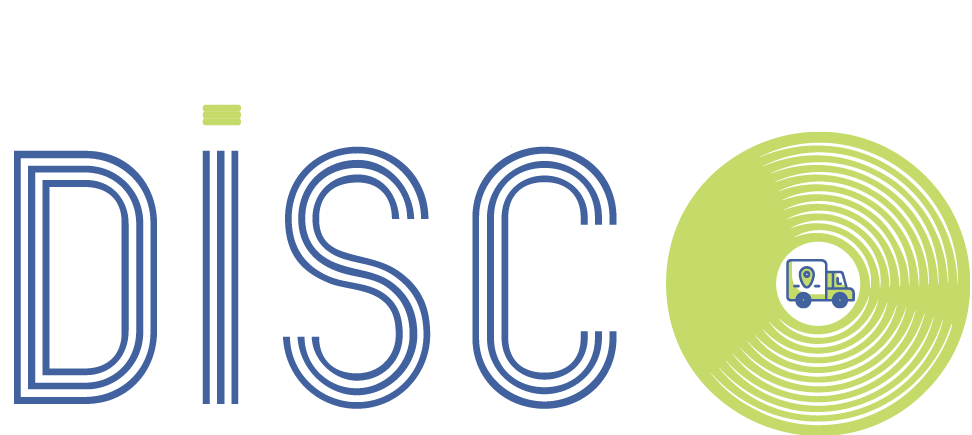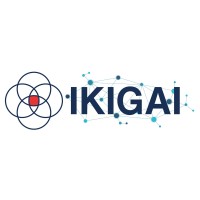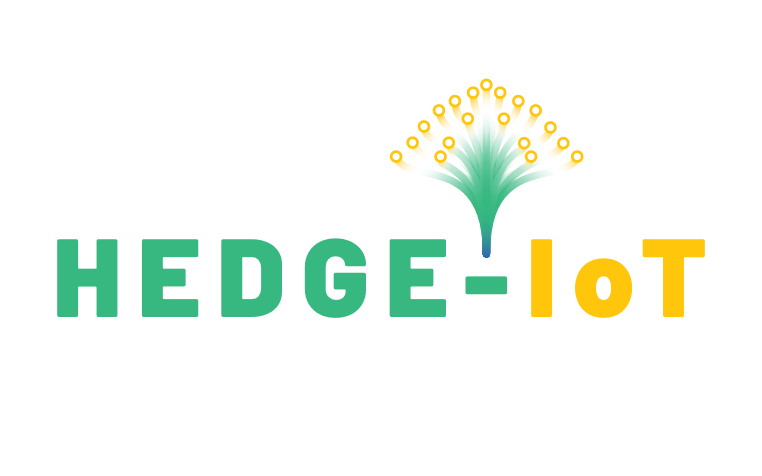Projects
Launchpad to the real world!
IDS research projects are the springboards that bring fundamental IDS concepts to life, test first proofs–of–concept and stimulate the adoption of IDS ideas.
IDSA as consortium partner
The consortium is at the heart of any research project. It is not only a written requirement for collaborative projects in Europe, but also crucial to the success of the project itself. See for yourself in which research or coordination projects IDSA is a consortium partner.
Accomplish
Short description
ACCOMPLISH aims to revolutionize regulatory compliance in data and AI operations through an AI-powered framework. By introducing a Compliance Digital Passport, the project facilitates real-time, dynamic compliance updates across industries such as energy, automotive, and aviation. It integrates legal, ethical, and sustainability considerations into data-driven processes, ensuring seamless adherence to regulations such as GDPR and the AI Act.
IDSA’s contribution
IDSA contributes to ACCOMPLISH by leading efforts in architecture design, certification, policy modeling for AI, dissemination, and impact creation. Our role ensures that the compliance mechanisms are interoperable, scalable, and aligned with international standards, facilitating the responsible use of AI and data across sectors.
DaCapo – Digital Tools for a Circular Economy
Short description
DaCapo takes circular economy business models to the next level. It moves beyond the traditional “take–make–use–dispose” logic by promoting reuse, sustainability, and resilience across manufacturing value chains. DaCapo will design human-centric digital tools and services to embed circular strategies throughout product lifecycles—from design and engineering to manufacturing, use, and end of life.
Overall goal
The project will create new digital assets, AI-based systems, and Digital Twins for processes and products. These innovations aim to improve efficiency, reduce reliance on critical raw materials, and support greener production. Demonstrations will take place in three sectors: aeronautics, electronics, and logistics. The overall goal is to establish methods that accelerate the adoption of circular economy business models.
DATAMITE - DATA Monetization, Interoperability, Trading & Exchange
Short description
DATAMITE will provide a modular framework for European companies to facilitate data monetization, interoperability, trading and exchange. To this end, the project will provide users with tools and open-source training materials to help improve data management and compliance with FAIR principles.
Overall goal
The goal is to open new revenue streams and business models through sovereign data sharing. DATAMITE will validate the results in three different use cases, demonstrating that the framework is interoperable and applicable in different domains and user needs: 1) intra-enterprise, cross-sector data sharing; 2) data trading between data spaces; 3) integration with other initiatives such as data markets, EU AI on Demand platform or DIHs.
DISCO – Smarter Urban Freight and Land Use
Short description
Urban freight transport supports commerce but creates congestion, noise, pollution, and safety issues that reduce citizens’ quality of life. With freight distribution growing, cities need better ways to plan and manage flows. The EU-funded DISCO project responds by developing a federated European data space for urban freight logistics. This open, collaborative platform provides city planners with tools to manage, monitor, and dynamically predict freight activity.
Overall goal
DISCO aims to transform urban planning through data-driven logistics and optimized land use. By enabling shared access to reliable data and smart decision-support tools, it strengthens city authorities’ capacity to implement sustainable, efficient, and resilient mobility strategies while reducing dependence on private global platforms.
DSSC – Data Spaces Support Centre
Short description
The Data Spaces Support Centre, funded by the Digital Europe Program, aims to aid public sector organizations and businesses in the creation of sovereign data spaces. As a central component of the harmonization and rollout of data spaces in Europe, the DSSC acts as an “umbrella CSA” to which other CSAs are subordinate.
Overall goal
By exploring the needs of data space initiatives, defining common requirements, and establishing best practices, the DSSC will accelerate the formation of data spaces as a critical aspect of digital transformation in all areas. By providing access to technologies, processes, legal frameworks, standards, and tools, the DSSC aims to enable the deployment of data spaces, foster adoption of technologies and standards, and facilitate the sharing of data to benefit citizens and businesses alike.
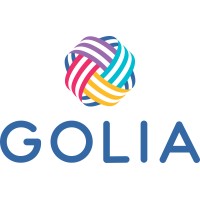
GOLIA – Adaptive Mobility Smart Governance
Short description
The EU-funded GOLIA project develops an integrated and adaptive mobility governance model. It combines STEM and social sciences expertise to promote accessible, just, and sustainable mobility systems. Central to this approach is the Social Optimum Mobility Index, a dynamic, location- and time-dependent measure that considers not only economic factors but also social support, life quality, and freedom of choice. The model will be tested with three European communities.
Overall goal
GOLIA aims to revolutionize spatial and mobility planning through inclusive, data-driven governance. By engaging citizens, policymakers, and businesses, it provides tools, methodologies, and recommendations that align strategies with the European Green Deal and reduce car dependency. In collaboration with Digital Hub Management GmbH, IDSA supports the development of trustworthy data sharing for sustainable mobility.
IKIGAI – Collaborative Logistics for Net-Zero Transport
Short description
Inspired by the Japanese concept of “ikigai” (purpose in life), the EU-funded IKIGAI project accelerates the Physical Internet vision by 2040 and targets fully decarbonised freight transport by 2050. It promotes open, standardised processes to improve efficiency, reduce emissions, and align with the UN 2030 sustainability agenda. IKIGAI scales up five Logistics Innovations, including trustee matchmaking, compliance platforms for SMEs, smart urban hubs, carbon chain-of-custody tools, and modular reusable boxes.
Overall goal
IKIGAI aims to transform European logistics into an affordable, collaborative, and coordinated system. By testing innovations in real-world pilots and re-engineering services from warehousing to last-mile delivery, it mobilises a global ecosystem committed to systemic change and the digital–green twin transition. In collaboration with Digital Hub Management GmbH, IDSA contributes its expertise in secure and interoperable data spaces for logistics.
ODEON – federated data and intelligence Orchestration & sharing for the Digital Energy transitiON
Short description
Europe’s energy system is changing as renewables grow and flexibility needs increase. The challenge is to ensure efficiency, resilience, and inclusion.
The EU-funded ODEON project connects data, intelligence, services, and markets to enable a coordinated energy ecosystem that benefits operators and consumers alike.
ODEON addresses six areas: data connectivity and privacy, smart grid investment, energy cybersecurity, consumer empowerment, digital energy use, and EU-wide coordination.
By demonstrating solutions in these areas, ODEON supports a secure, fair, and consumer-friendly energy transition. It aligns Europe’s green and digital agendas to deliver real value across society.
OPENVERSE – Building Europe’s Virtual Worlds Knowledge Base
Short description
Europe envisions open, inclusive, and ethical virtual worlds that strengthen EU technological sovereignty and deliver social and economic benefits. The EU-funded OPENVERSE project supports this vision by creating a comprehensive knowledge base on European virtual worlds. It will bring together stakeholders, test user co-creation and extended reality, and examine ethical, legal, and market challenges.
Overall goal
OPENVERSE aims to lay the groundwork for human-centric virtual worlds in Europe. By developing standards, technology roadmaps, and policy recommendations, the project will promote accessibility, interoperability, privacy, and innovation. Its outputs will guide the establishment of open virtual worlds that foster creativity, collaboration, and competitiveness in Europe and beyond.
RE4DY – European Data as a product value ecosystems for resilient factory 4.0 product and production continuity and sustainability
Short description
Data-driven digital manufacturing must incorporate resilience strategies at the production and supply chain levels for their sovereignty and competitiveness. Long-term resilience requires ensuring distributed, data-intensive and dynamic decision support and automation processes that integrate AI into a symbiosis of humans and automation.
Overall goal
RE4DY aims to demonstrate that European industry can build data-driven digital networks to gain advantage through sovereign data sharing across all stages of the product and process lifecycle. The project proposes the core concept of “data as a product”. This concept leverages digital ecosystems that support the development and implementation of digital continuity so that distributed data management solutions can be reused instantly and seamlessly.
VELES – Smart Health Innovation in South-East Europe
Short description
Health data, AI, cloud computing, and IoT are reshaping healthcare in Europe. The EU-funded VELES project strengthens innovation excellence in Bulgaria, Cyprus, Greece, and Romania by creating a sustainable regional smart health ecosystem. At its core is the Regional Smart Health Data Space, designed to enable predictive, preventive, and personalised medicine. Four pilots will demonstrate its value, focusing on cancer treatment, Alzheimer’s diagnosis, cerebral tumour prognosis, and dementia prediction.
Overall goal
VELES aims to advance secure and sustainable healthcare services through a novel framework, R&I strategy, and investment plan. By fostering cross-country collaboration, it promotes data-driven, cyber-secure health solutions that improve clinical practice, preserve privacy, and empower citizens across South-East Europe.
Zero-SWARM – Climate Neutral and Digitised Manufacturing
Short description
The EU-funded Zero-SWARM project advances climate-neutral and digitised production through a multidisciplinary, human-centric approach. It integrates 5G, cloud-edge continuum, data spaces, GAIA-X, and operational technologies into an open swarm framework. Ten industrial trials will demonstrate solutions such as smart assembly, sustainable powertrains, remote operation, process-aware AGVs, and zero-defect manufacturing.
Overall goal
Zero-SWARM aims to break down silos between maturing technologies and create resilient, sustainable, and data-driven manufacturing systems. By co-developing with industry players across three European nodes, the project fosters innovation, skills development, and collaboration with Digital Innovation Hubs. Its community-driven model ensures long-term impact, positioning Europe as a leader in sustainable and intelligent manufacturing.
AgriDataValue
Short description
Agriculture faces major challenges: It must meet the world’s food needs, provide farmers with an adequate income and protect the environment at the same time. To achieve these goals, smart agriculture and careful use of resources are required. AgriDataValue aims to establish itself as a “game changer” in the field of smart agriculture and agri-environmental monitoring.
Overall goal
The project will strengthen smart agriculture capacity, competitiveness and fair income through the implementation of an innovative, intelligent and multi-technological fully distributed platform.
AgriDataValue takes a multi-dimensional approach that combines Big Data and Data Spaces technologies (BDVA/IDSA/GAIA-X) with agricultural knowledge, new business models and agri-environmental measures.
DataBri-X – A Toolbox for the European Data Economy
Short description
Europe’s data economy relies on accessible, high-quality data to drive innovation and trustworthy AI. Yet, data sharing and interoperability are still underdeveloped. The EU-funded DataBri-X project addresses this challenge by creating a holistic, energy-efficient, and user-friendly toolbox of “bricks” (Bri-X). These modular tools improve interoperability, usability, discoverability, quality, and integrity of data and metadata, supporting the growth of European data spaces.
Overall goal
DataBri-X aims to equip European data spaces with a flexible and standards-based toolbox that combines open-source and commercial solutions. By aligning with FAIR principles and ensuring accountability, privacy, and security, the project strengthens Europe’s ability to expand digital value creation and foster trusted data sharing across domains.
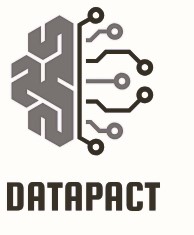
DATAPACT
Short description
The DATAPACT project focuses on establishing trustworthy and transparent data-sharing ecosystems by embedding compliance, ethics, and sustainability principles into AI and data pipelines. By automating compliance processes and enhancing data governance frameworks, the project ensures organizations can securely share and utilize data across diverse industries, including healthcare, urban planning, and marketing.
IDSA’s contribution
IDSA supports DATAPACT through dissemination, impact creation, architecture development, and requirements analysis. Our expertise helps shape the project’s framework, ensuring robust governance models and scalable compliance tools that align with emerging EU regulations and data-sharing policies.
DIVINE - DemonstratIng the Value of data sharINg to boost the agri-data Economy
Short description
Although some players in agriculture are making good use of the data they generate, the industry still lacks holistic approaches to data sharing and analysis along the entire agri-food supply chain. The DIVINE project will build an agricultural data ecosystem that incorporates existing agricultural data spaces while conducting industry-led pilots based on data sharing agreements.
Overall goal
The goal of DIVINE is to demonstrate the cost-benefit and added value of agricultural data sharing. DIVINE will promote its ecosystem and assessments to technology providers, policymakers, agriculture representatives, and various other agricultural data stakeholders. It will take the first concrete steps towards mature data markets in European and global agriculture.
FAME – federated decentralized trusted data marketplace for embedded finance
Short description
FAME will develop, deploy, and launch a federated data marketplace for embedded finance. Embedded finance is designed to streamline financial processes for consumers, making it easy to access services when they need them. The project will extend a data marketplace infrastructure in three directions: 1) secure, interoperable, and compliant data sharing across multiple federated cloud-based data providers in line with new European initiatives such as GAIA-X, 2) decentralized trading of data assets using blockchain tokenization techniques, 3) integration of trusted and energy-efficient analytics.
FAME will be connected to more than 12 data marketplaces operated by project partners, as well as other data infrastructures. Through this process, the FAME marketplace catalog will be populated with more than 1000 data assets.
HEDGE-IoT – IoT for a Flexible and Resilient Grid
Short description
Renewable energy integration challenges the stability of Europe’s power systems. The EU-funded HEDGE-IoT project develops an interoperable digital framework that uses IoT across different grid levels, from behind-the-meter to transmission operators. By combining edge and cloud computing with federated learning, it enables smarter, more dynamic grid operations. This ecosystem enhances renewable hosting capacity, flexibility, and resilience while fostering innovation.
Overall goal
HEDGE-IoT aims to revolutionize energy digitalisation through a standardized, scalable IoT framework. It introduces intelligent, interoperable energy services and strengthens collaboration between stakeholders. By improving grid flexibility and resilience, the project expands market opportunities, advances IoT standardisation, and supports the sustainable transition toward a robust and renewable-based European energy system.
LICORICE – reLIable and sCalable tOols foR self-sovereIgn identity and data proteCtion framework
Short description
The LICORICE project aims to enhance cybersecurity by developing tools and solutions for safer online environments, digital services, and processes. By focusing on secure data handling and trust mechanisms, LICORICE ensures that both businesses and citizens benefit from high levels of security, trust, and data protection. The project contributes to the European cybersecurity ecosystem by strengthening digital resilience and compliance with evolving regulations.
IDSA’s contribution
IDSA plays an important role in the LICORICE project by contributing expertise in legal, ethics, standardization, exploitation, and stakeholder engagement. Our focus is on ensuring that cybersecurity solutions align with regulatory frameworks, fostering trust in data sharing while supporting the development of standardized security mechanisms.
Omega-X – Orchestrating an interoperable sovereign federated Multi-vector Energy data space built on open standards and ready for Gaia-X.
Short description
Omega-X stands for Orchestrating an interoperable sovereign federated Multi-vector Energy data space built on open standards and ready for Gaia-X. The proposed concept and architecture heavily rely on the approaches adopted by IDSA, GAIA-X, FIWARE, BDVA/DAIRO and SGAM as major EU references regarding data spaces. It will pursue the GAIA-X label, which ensures highest standards on protection, security, transparency, openness and trust, avoids vendor lock-in and is restricted to EU countries.
Overall goal
The aim of this European research and innovation action is to implement an Energy Data Space which will be based on common European standards, including a federated infrastructure, a data marketplace, and a service marketplace.
PLIADES - AI-Enabled Data Lifecycles Optimization and Data Spaces Integration for Increased Efficiency and Interoperability
Short description
PLIADES advances data space reference architectures, empowering data as a key driver for AI and Robotics innovation. It pioneers AI-enabled tools for seamless data integration across life cycles within and between data spaces. Sustainable data creation methods ensure efficient storage with reduced environmental impact. Data privacy and sovereignty are fortified through decentralized protocols. IDS-based brokers and data connectors revolutionize data sharing, enhancing metadata for improved interoperability. Active data discovery services enable linked data spaces and real-time data evaluation. Collaborations with EU initiatives contribute to a Common European Data Space. Six diverse use cases validate advancements in AI and Robotics, spanning mobility, healthcare, industry, energy, and green deal sectors.
IDSA’s contribution
The project capitalizes on the IDS-RAM to comprehensively analyze technical, functional, and organizational requirements for sovereign data sharing. Through threat and risk analysis, security measures are devised, prioritizing essential features of trusted connectors like App Isolation and Data Usage Control. Utilizing IDS-RAM ensures not only data sovereignty but also secure data sharing and compatibility with diverse protocols.
TANGO – Digital Technologies ActiNg as a Gatekeeper to information and data flOws
Short description
TANGO will establish a stronger cross-sector data sharing. The overall outcome of the project is a novel platform that allows user-friendly, secure, trustworthy, compliant, fair, transparent, accountable, and environmentally sustainable data management. The platform will promote trustworthy and digitally enabled interactions across society, having at its core technology components for distributed, privacy preserving and environmentally sustainable data collection, processing, analysis, sharing and storage.
Overall goal
TANGO aims at leveraging the power of emerging digital technologies to strengthen the privacy for citizens and private/public organizations, reduce costs and improve productivity. It will unlock the innovation potential of digital technologies for decentralized, privacy-preserving applications, while making accessible and demonstrating this potential within the GAIA-X and EOSC ecosystem

WILSON – Distributed data modelling and Federated Digital Twinning for lifecycle data-driven sustainable operation and management of buildings and districts
Short description
As the built environment confronts challenges like climate change, energy consumption, and social inequality, there’s an increasing need for sustainable building practices that go beyond just energy efficiency. These practices must address environmental, social, and economic factors throughout the entire lifecycle of buildings. In response to these challenges, WILSON introduces an innovative approach that utilizes semantic data repositories, cognitive digital twins, and decentralized data management to revolutionize building and portfolio management
Overall goal
The project’s primary aim is to enhance sustainability by employing advanced technologies and novel management practices. Central to WILSON’s development is a decentralized data mesh architecture, designed to be independent of and compatible with proprietary Building Management Systems (BMS) and Digital Twin Systems. The key goals include improving building operations, assessing environmental impact, and enhancing building diagnostics and monitoring. To achieve this, Personalized Data Hubs (PDHs) will connect and integrate all WILSON solutions, following International Data Spaces (IDS) principles.
IDSA as sub-contractor
Projects are not a one-man show. They require professionals with skills, and the more complex a project is, the more skills are needed. That is why project partner subcontract action tasks they cannot do themselves. Here is an overview of the projects for which IDSA is a subcontractor.
ScaleTrust – Scalable Compliance and Ethical Data Trusteeship
Short description
The EU- and BMBF-funded caleTrust project develops a cross-sector, cross-application, and cross-border model for secure and trustworthy data exchange. Using the Green Deal Dataspace as a starting point, it explores how a legal and reliable trusteeship framework can support resilience and sustainability in industry. The dataspace focuses on circular economy optimization and supply chain transparency.
Overall goal
caleTrust aims to establish a transferable trusteeship model through use cases such as supply chain risk management and product carbon footprint data. The project develops standard contracts, processes, and business models for long-term operation, alongside a robust technical foundation. Its goal is to enable trusted, legally compliant data sharing that strengthens European sustainability efforts.
UNDERPIN – Monitoring Framework for Climate Adaptation
Short description
The EU-funded UNDERPIN project addresses gaps in monitoring, evaluation, and learning for climate adaptation in Europe. Current frameworks often emphasize processes but overlook long-term resilience outcomes. UNDERPIN develops an outcome-oriented framework with standardized indicators to track adaptation progress across local, regional, and national levels. It integrates novel data sources, including Earth observation and citizen science, and co-creates solutions with stakeholders in three pilot regions.
Overall goal
UNDERPIN aims to harmonize climate adaptation monitoring across governance levels by providing tools that assess both short-term results and long-term impacts. A user-friendly dashboard with AI and machine learning supports real-time analysis, enabling data-driven decisions that strengthen resilience and align with EU and global standards.
More
Position Paper
Jointly Paving the Way for a Data Driven Digitalisation of European Industry
Newsletter
Stay up-to-date with our monthly Newsletter
Use Cases
Learn about use cases pertaining to a wide variety of industry sectors and business activities
Any questions? Contact us!

Your contact person:
Silvia Castellvi
Director Research & Standardization
Become a member
Benefit from all current developments: Become a member of the International Data Spaces Association now!



